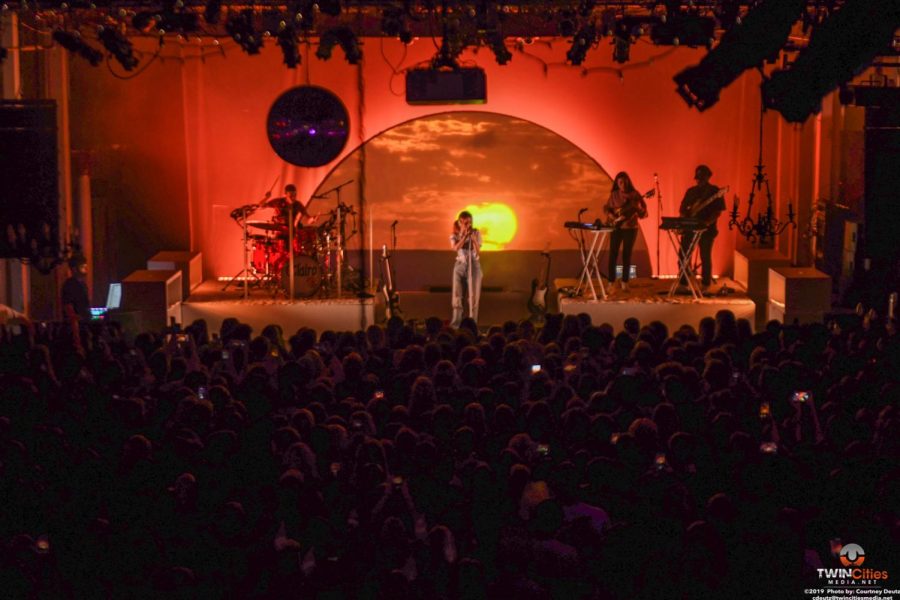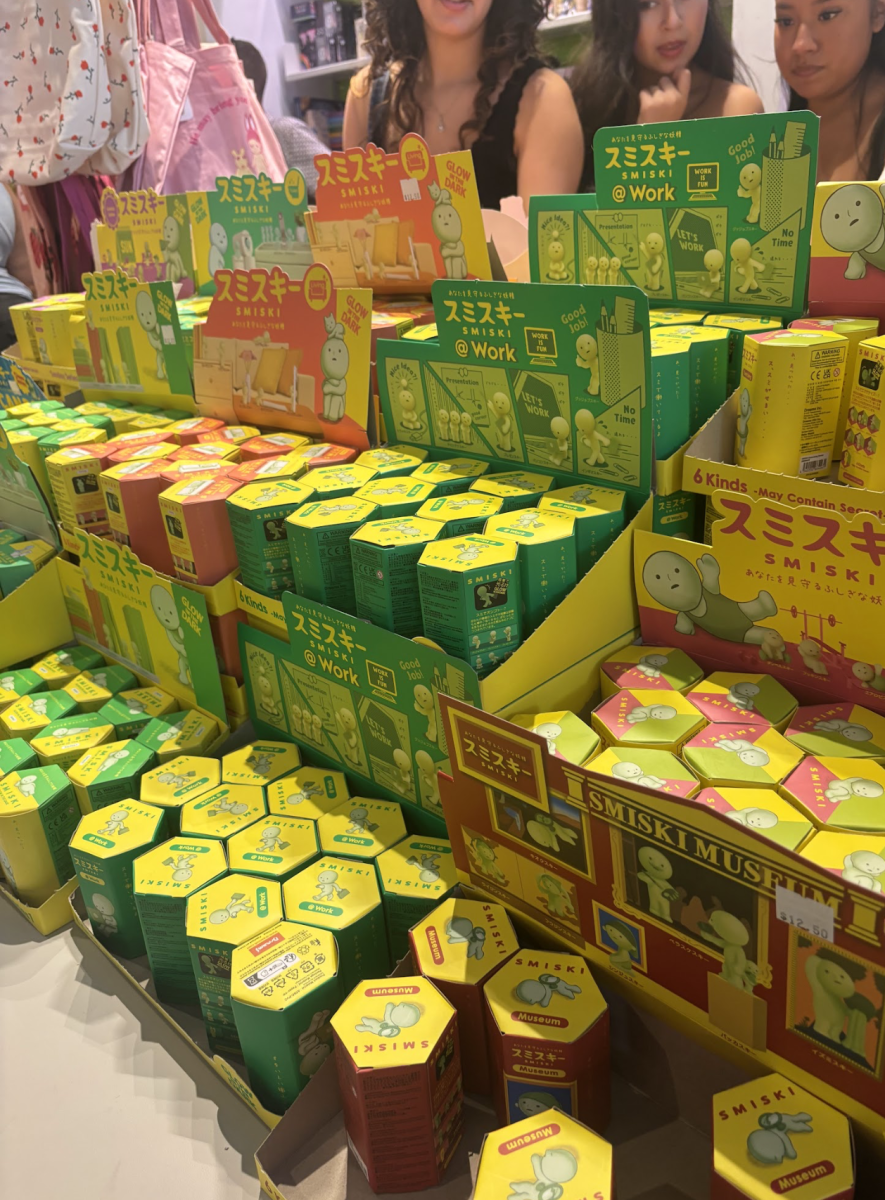“Chronically Online:” The Effect of the Internet on Live Music
Photo courtesy of Twin Cities Media
A crowd is gathered in front of Clairo at a concert at the Varsity Theater, the stage has a sunset on the screen behind it
April 10, 2022
As singer-song-writer, Clairo performs the vulnerable song, “Blouse,” a song about her experience being sexualized in the workplace, a fan inconsiderately cries out “You’re so hot!” when the song finishes. A clear look of disappointment and frustration is apparent of Clairo’s face as she laughs lightly to brush it off.
Mistki, on a brand new tour, pours her heart and body into her performance, laying down on the floor of the stage as the lights and music cuts. She has the audience waiting in eerie, yet powerful silence until a shrill voice yells, “Get up Mitski!” unraveling Mitski’s meticulous and intimate mood during the concert.
All of these unfortunate, ironic, and frustrating situations happen all too often during concerts. Now, the abundance of “stan” culture and the plague of being “chronically online” has been chipping away at the relationship (if you could even call it that) between celebrities and their fans.
The term “chronically online” has increased in usage in recent years as a direct side effect of the two years we all spent online during the pandemic. With nothing left to do but scroll, scroll, and scroll, the climate of the internet recently has seemed extremely removed from reality. As everyone is equally entitled to their opinions, the accessibility of sharing them on the internet is constant, but not everyone has the best ideas. Because of the constant input of information from the internet, people who spend all their time online think they are informed, but with a lack of real world conversations, their ability to form new opinions and ideas has become removed from reality.
For example, all of the jokes being made about the Ukraine/Russia war can be considered chronically online as they freely make jokes about a serious and terrifying real world problem. Only seeing the war as fuel for content and jokes is a massive problem that platforms like Twitter and TikTok have fallen victim to recently.
In the music world, with people pining to get back to in-person concerts, fan’s social skills have done anything but matured. A perfect storm of excessive media intake of a musician and their music with the lack of social interaction has led to some fan bases being poisoned with half baked tweets and annoying heckling at concerts. While most of these takes stay online, they, unfortunately, slip their way into the real world.
With artists like Mitski who blew up on TikTok during the pandemic, all of her new fans have only interacted as fans online. This leads to people shouting things during concerts that are acceptable on the internet, but most definitely not in the real world. Internet slang is slang for a reason: it’s only meant for a specific crowd and that crowd is, of course, just the internet.











